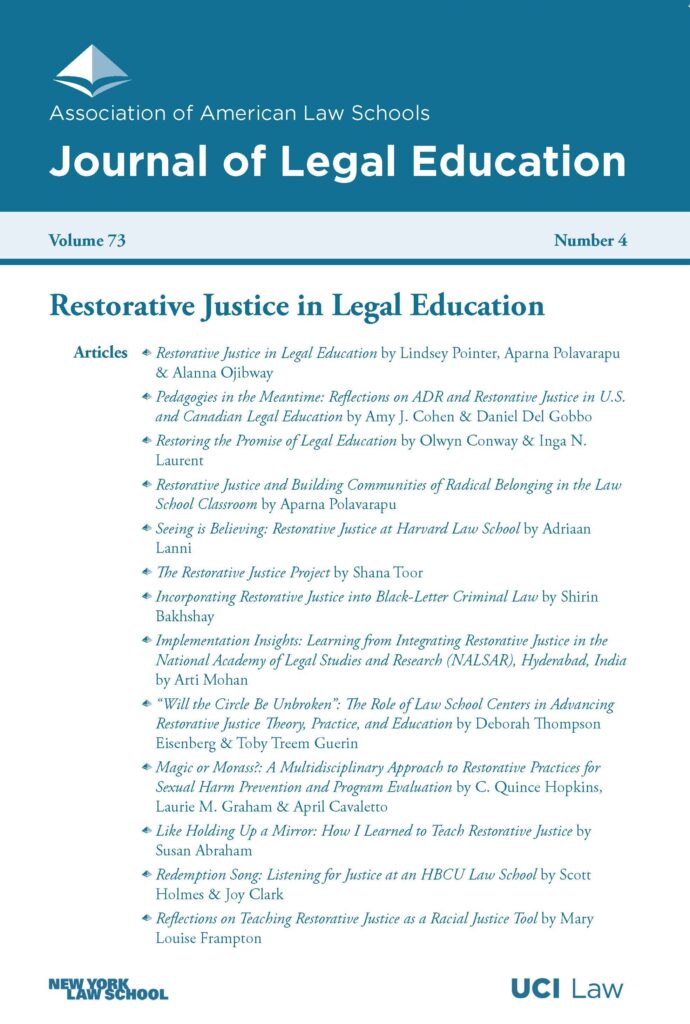The recently released issue 73-4 of the Journal of Legal Education is based on a symposium initiated by the National Center on Restorative Justice (NCORJ) at Vermont Law and Graduate School. The issue illuminates how to include restorative justice in law school curricula and institutional offerings. This collection of articles explores characteristics of pedagogy, methods of teaching, and established and growing initiatives in restorative justice.
Edited in collaboration by New York Law School and the University of California, Irvine School of Law, this issue features the following articles:
Articles
- “Restorative Justice in Legal Education” by Lindsey Pointer, Aprna Polavarapu, and Alanna Ojibway
- “Pedagogies in the Meantime: Reflections on ADR and Restorative Justice in U.S. and Canadian Legal Education” by Amy J. Cohen and Daniel Del Gobbo
- “Restoring the Promise of Legal Education” by Olwyn Conway and Inga N. Laurent
- “Restorative Justice and Building Communities of Radical Belonging in the Law School Classroom” by Aparna Polavarapu
- “Seeing is Believing: Restorative Justice at Harvard Law School” by Adriaan Lanni
- “The Restorative Justice Project” by Shana Toor
- “Incorporating Restorative Justice into Black-Letter Criminal Law” by Shirin Bakhshay
- “Implementation Insights: Learning from Integrating Restorative Justice in the National Academy of Legal Studies and Research (NALSAR), Hyderabad, India” by Arti Mohan
- “Will the Circle Be Unbroken”: The Role of Law School Centers in Advancing Restorative Justice Theory, Practice, and Education” by Deborah Thompson Eisenberg and Toby Treem Guerin
- “Magic or Morass?: A Multidisciplinary Approach to Restorative Practices for Sexual Harm Prevention and Program Evaluation” by C. Quince Hopkins, Laurie M. Graham, and April Cavaletto
- ”Like Holding Up a Mirror: How I Learned to Teach Restorative Justice” by Susan Abraham
- “Redemption Song: Listening for Justice at an HBCU Law School” by Scott Holmes and Joy Clark
- “Reflections on Teaching Restorative Justice as a Racial Justice Tool” by Mary Louise Frampton

About the JLE
Established in 1948, the JLE is the journal of record for the American legal academy, published by AALS in its role as the learned society for the study of law and legal education. The publication’s primary purpose is to provide AALS member schools and faculty with articles of timely relevance to a wide array of interests and areas of expertise. The JLE serves as a meaningful resource for faculty and others to keep abreast of the most recent thinking, trends, and changes in legal education.

